Resources
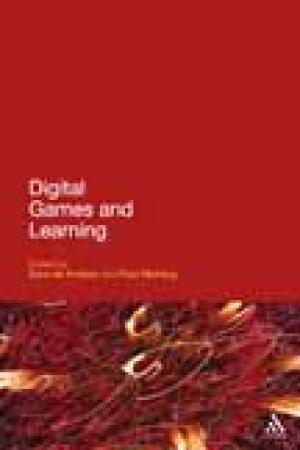
The popularity of entertainment gaming over the last decades has led to the use of games for non-entertainment purposes in areas such as training and business support. The emergence of the serious games movement has capitalized on this interest in leisure gaming, with an increase in leisure game approaches in schools, colleges, universities and in professional training and continuing professional development. The movement raises many significant issues and challenges for us. How can gaming and simulation technologies be used to engage learners? How can games be used to motivate, deepen and accelerate learning? How can they be used to greatest effect in learning and teaching? The contributors explore these and many other questions that are vital to our understanding of the paradigm shift from conventional learning environments to learning in games and simulations. (From the Publisher)
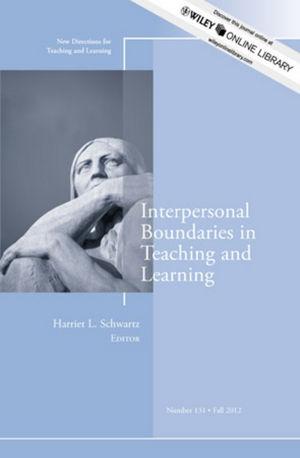
New Directions for Teaching & Learning, Number 131 While issues of interpersonal boundaries between faculty and students is not new, more recent influences such as evolving technology and current generational differences have created a new set of dilemmas. How do we set appropriate expectations regarding e-mail response time in a twenty-four-hour, seven-day-a-week Internet-connected culture? How do we maintain our authority with a generation that views the syllabus as negotiable? Complex questions about power, positionality, connection, distance, and privacy underlie these decision points. This sourcebook provides an in-depth look at interpersonal boundaries between faculty and students, giving consideration to the deeper contextual factors and power dynamics that inform how we set, adjust, and maintain boundaries as educators. This is the 131st volume of this Jossey-Bass higher education series. New Directions for Teaching and Learning offers a comprehensive range of ideas and techniques for improving college teaching based on the experience of seasoned instructors and the latest findings of educational and psychological researchers. From the Publisher

This book provides comprehensive analyses of issues related to the struggle against the forces of imperial-induced privatization, not just in education, but in all of social life. It situates Critical Pedagogy in the twenty-first century and offers not only critiques but also practical applications, suggestions, and strategies on how attacks can be collectively resisted, challenged, and eradicated especially by those teaching in schools and universities. (From the Publisher)
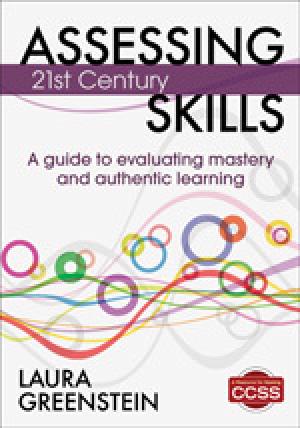
The Common Core State Standards clearly define the skills students need for success in college and the 21st century workplace. The question is, how can you measure student mastery of skills like creativity, problem solving, and use of technology? Laura Greenstein demonstrates how teachers can teach and assess 21st century skills using authentic learning experiences and rigorous, varied assessment strategies. Based on the best ideas of renowned experts in education, this book provides a framework and practical ideas for measuring • Thinking skills: critical thinking, problem solving, creativity, and metacognition • Actions: communication, collaboration, digital and technological literacy • Living skills: citizenship, global understanding, leadership, college and career readiness Included are numerous rubrics and checklists, a step-by-step model for developing your own classroom assessments, a lesson planning template, and sample completed lesson plans. Assessing 21st Century Skills gives you the tools and strategies you need to prepare students to succeed in a rapidly changing world. (From the Publisher)
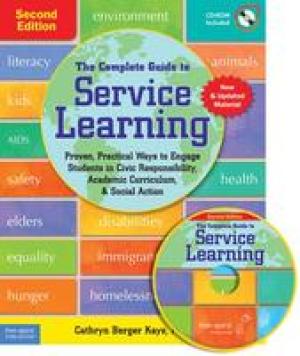
The Complete Guide to Service Learning is the go-to resource in the fast-growing field of service learning. It is an award-winning treasury of service activities, community service project ideas, quotes, reflections, and resources that can help teachers and youth workers engage young hearts and minds in reaching out and giving back. Author, and internationally known service learning expert, Cathryn Berger Kaye presents service learning—its importance, steps, essential elements, and challenges—within a curricular context and organized by theme. This new revised and updated second edition maintains the easy-to-use format of the original and is enhanced to reflect the most up-to-date information on service learning programs and pedagogy. Benefits include: • A blueprint for service learning, from getting started to assessing the experience • Integration of K–12 service learning standards new! • Inspiring quotations, background information and resources, preparation activities, real-life examples and community service project ideas that have worked for other teachers • 13 thematic chapters (including 2 new themes) covering topics commonly selected for service learning projects: • AIDS Education and Awareness • Animal Protection and Care • Elders • Emergency Readiness new! • The Environment • Gardening • Healthy Lives, Healthy Choices new! • Hunger, Homelessness, and Poverty • Immigrants • Literacy • Safe and Strong Communities • Social Change: Issues and Action • Special Needs and Disabilities • Hundreds of real-life field-tested service learning projects, including dozens of new projects • Ideas for fortifying service learning programs by incorporating global literacy and creating a culture of service new! • A CD-ROM with over 200 pages of forms and bonus materials including: • All of the planning and tracking forms from the book, many customizable  • 39 sample planning templates for all service learning themes at each grade level • 10 original essays written by experts in the field • More than 300 additional book recommendations • 22 author interviews, including new interviews with authors Laurie David, Allan Stratton, Cynthia Lord, Jordan Sonnenblick, Tony Johnston, Kathe Koja, Danica Novgorodoff, Dana Reinhardt, Janet Tashjian, Deborah Ellis, Sonia Levitin, Ellen Senisi, and more! “Bookshelf” sections describe hundreds of books that offer teachable moments about community service, responsibility, caring, and helping, as well as ways to encourage discussion and make the lesson last. Each of the more than 300 annotated book listings helps combine literature and service learning. (From the Publisher)
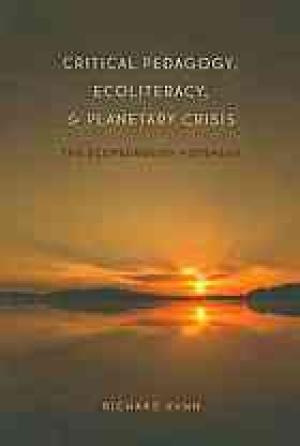
We live in a time of unprecedented planetary ecocrisis, one that poses the serious and ongoing threat of mass extinction. What role can critical pedagogy play in the face of such burgeoning catastrophe? Drawing upon a range of theoretical influences - including Paulo Freire, Ivan Illich, Herbert Marcuse, traditional ecological knowledge, and the cognitive praxis produced by today's grassroots activists in the alter-globalization, animal and earth liberation, and other radical social movements - this book offers the foundations of a philosophy of ecopedagogy for the global north. In so doing, it poses challenges to today's dominant ecoliteracy paradigms and programs, such as education for sustainable development, while theorizing the needed reconstruction of critical pedagogy itself in light of our presently disastrous ecological conditions. Students and teachers of critical pedagogy at all levels, as well as those involved in environmental studies and various forms of sustainability education, will find this book a powerful provocation to adjust their thinking and practice to better align with those who seek to abolish forms of culture predicated upon planetary extermination and the domination of nature. (From the Publisher)
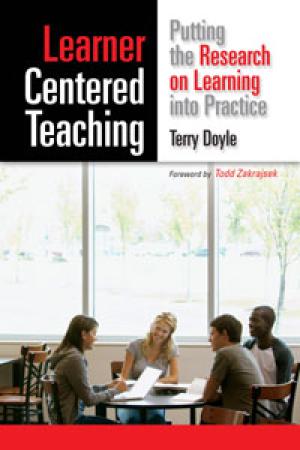
This book presents the research-based case that Learner Centered Teaching (LCT) offers the best means to optimize student learning in college, and offers examples and ideas for putting it into practice, as well the underlying rationale. It also starts from the premise that many faculty are much closer to being learner centered teachers than they think, but don’t have the full conceptual understanding of the process to achieve its full impact. There is sometimes a gap between what we would like to achieve in our teaching and the knowledge and strategies needed to make it happen. LCT keeps all of the good features of a teacher-centered approach and applies them in ways that are in better harmony with how our brains learn. It, for instance, embraces the teacher as expert as well as the appropriate use of lecture, while also offering new, effective ways to replace practices that don’t optimizing student learning. Neuroscience, biology and cognitive science research have made it clear that it is the one who does the work who does the learning. Many faculty do too much of the work for their students, which results in diminished student learning. To enable faculty to navigate this shift, Terry Doyle presents an LCT-based approach to course design that draws on current brain research on cognition and learning; on addressing the affective concerns of students; on proven approaches to improve student’s comprehension and recall; on transitioning from “teller of knowledge” to a “facilitator of learning”; on the design of authentic assessment strategies – such as engaging students in learning experiences that model the real world work they will be asked to do when they graduate; and on successful communication techniques. The presentation is informed by the questions and concerns raised by faculty from over sixty colleges with whom Terry Doyle has worked; and on the response from an equal number of regional, national and international conferences at which he has presented on topics related to LCT. (From the Publisher)

This is a book for anyone who has ever considered engaging in the scholarship of teaching and learning – known familiarly as SoTL – and needs a better understanding of what it is, and how to engage in it. The authors describe how to create a SoTL project, its implications for promotion and tenure, and how it fosters: * Increased satisfaction and fulfillment in teaching * Improved student learning * Increased productivity of scholarly publication * Collaboration with colleagues across disciplines * Contributing to a growing and important body of literature This guide provides prospective SoTL scholars with the necessary background information, foundational theory, tools, resources, and methodology to develop their own SoTL projects, taking the reader through the five stages of the process: Generating a research question; Designing the study; Collecting the data; Analyzing the data; and Presenting and publishing your SoTL project. Each stage is illustrated by examples of actual SoTL studies, and is accompanied by worksheets to help the reader refine ideas and map out his or her next steps. The process and worksheets are the fruit of the successful SoTL workshops the authors have offered at their institution for many years. SoTL differs from scholarly and reflective teaching in that it not only involves questioning one’s teaching or a teaching strategy, but also formally gathering and exploring evidence, researching the literature, refining and testing practices, and finally going public. The purpose of SoTL is not just to make an impact on student learning, but through formal, peer-reviewed communication, to contribute to the larger knowledge base on teaching and learning. While the roots of SoTL go back some 30 years, it was Ernest Boyer in his classic Scholarship Reconsidered who made the case for the parity of the scholarships of integration, of discovery, of application, and of scholarship of teaching as vital to the health of higher education. Glassick, Huber, and Maeroff ’s subsequent Scholarship Assessed articulated the quality standards for SoTL, since when the field has burgeoned with the formation of related associations, a proliferation of conferences, the launching of numerous journals, and increasing recognition and validation by institutions. (From the Publisher)
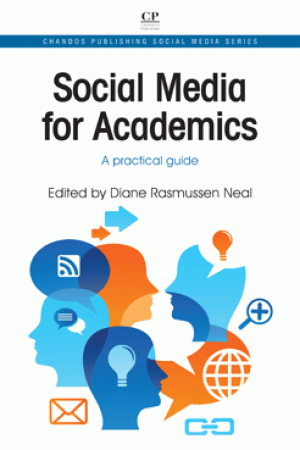
No other book exists that assists academics in learning how to use social media to benefit their teaching and research.  - the editor has an extensive background in social media teaching, consulting, research, and everyday use  - all the contributors come to the book with a common goal, from various expertise areas and perspectives This book provides an overview of social media technologies in the context of practical implementation for academics, guided by applied research findings, current best practices, and the author’s successful experiences with using social media in academic settings. It also provides academics with sensible and easy strategies for implementing a wide spectrum of social media and related technologies - such as blogs, wikis, Facebook, and various Google tools for professional, teaching, and research endeavours. Readership: Academics and academic librarians with professional, teaching and research responsibilities in all fields who are interested in learning more about using social media in the context of their careers, will find this book invaluable. (From the Publisher)
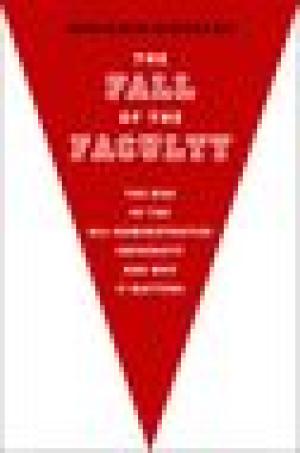
Until very recently, American universities were led mainly by their faculties, which viewed intellectual production and pedagogy as the core missions of higher education. Today, as Benjamin Ginsberg warns in this eye-opening, controversial book, "deanlets"--administrators and staffers often without serious academic backgrounds or experience--are setting the educational agenda. The Fall of the Faculty examines the fallout of rampant administrative blight that now plagues the nation's universities. In the past decade, universities have added layers of administrators and staffers to their payrolls every year even while laying off full-time faculty in increasing numbers--ostensibly because of budget cuts. In a further irony, many of the newly minted--and non-academic--administrators are career managers who downplay the importance of teaching and research, as evidenced by their tireless advocacy for a banal "life skills" curriculum. Consequently, students are denied a more enriching educational experience--one defined by intellectual rigor. Ginsberg also reveals how the legitimate grievances of minority groups and liberal activists, which were traditionally championed by faculty members, have, in the hands of administrators, been reduced to chess pieces in a game of power politics. By embracing initiatives such as affirmative action, the administration gained favor with these groups and legitimized a thinly cloaked gambit to bolster their power over the faculty. As troubling as this trend has become, there are ways to reverse it. The Fall of the Faculty outlines how we can revamp the system so that real educators can regain their voice in curriculum policy. Features • Powerful and stinging critique of one of the most powerful trends in academia: the shift in power to non-academic administrators • Exceptionally well written polemic that will stir controversy at universities across the country • The author is well known throughout academia, and has coauthored one of the bestselling textbooks on American government in recent history (From the Publisher)